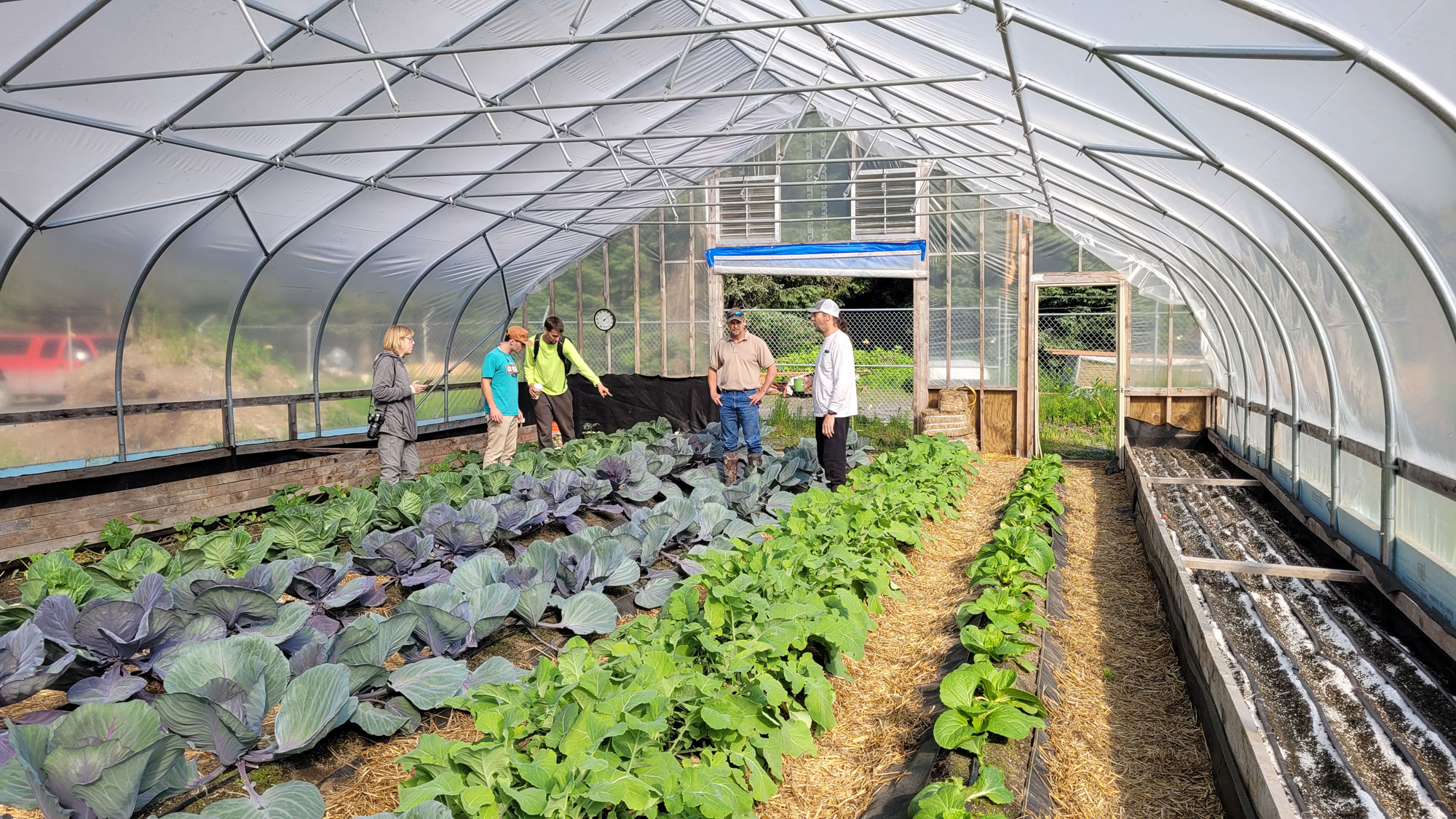In Alaska, where most food is imported, the U.S. Department of Agriculture (USDA) is helping local Alaskans and Alaska Natives grow their own fresh food. As a 2022 recipient of a USDA 2501 grant, the Kodiak Archipelago Leadership Institute (KALI) is expanding access to USDA programs and connecting farmers to USDA resources and technical assistance.
To mitigate the loss of subsistence farming in Native Alutiiq communities, KALI, through its Alutiiq Grown farming network, works with USDA agencies and state and local partners like the Kodiak Soil and Water Conservation District to conduct training activities. The 2501 grant supports outreach activities, including webinars that highlight available USDA programs and other resources, hands-on trainings that teach practical skills in agriculture, and site visits that help farmers address on-the-ground challenges in real time.
“The 2501 program is providing foundational information for farmers to be successful in growing food or developing their business plans, and that starts with access to USDA resources,” said KALI Executive Director Roberta Townsend Vennel. “We are glad to be part of this program that has helped us provide opportunities to our off-road system coastal communities.”
In Alaska’s more isolated locations, in-person training opportunities aren’t always practical. Although KALI’s established distance learning programs enable farmers to learn virtually, hands-on training in the isolated Kodiak region was limited. With help from USDA 2501 grant, communities can now learn first-hand and in-person from one another, remain connected to resources, and collectively work towards growing more traditional foods for their Native communities.
For example, a partnership with Oceanside Farms on the neighboring Kenai Peninsula enabled participants to learn from a more established farming community through cross-region field practicums. These hands-on trainings helped current and prospective farmers learn different farming systems and allowed aspiring farmers to try agricultural activities for themselves.
“Hands-on training and assistance help give them the confidence to try something new,” said Townshend Vennel.
Thanks to the 2501 program, more Alaska Native communities are participating in more USDA programs and building a local food system that addresses environmental challenges, allows farmers to feed themselves and their communities, and supports the long-term sustainability of Kodiak’s coastal communities.
USDA is committed to ensuring underserved communities more fully access and participate in USDA programs and services to help them thrive. Visit the 2501 website for more information.

